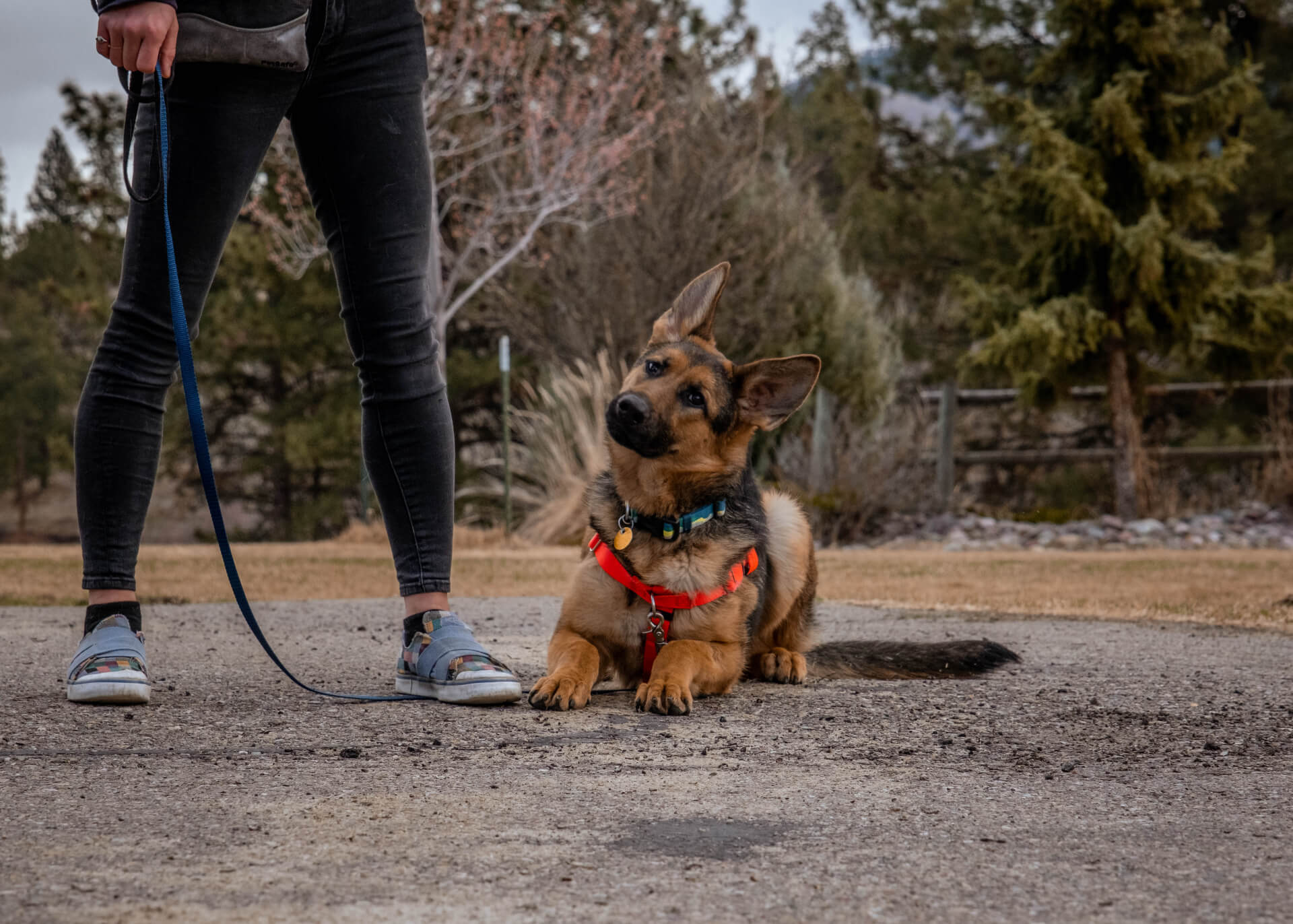
Housetraining Your Adult Dog
While many adult dogs adopted from shelters were housetrained in their previous home, this does not necessarily mean that they will be able to remember those rules in a new home with a different routine. It is important to set pets up for success and to teach them the rules and where to relieve themselves. The basics for housetraining any adult dog are as follows: establish a routine, supervise your dog when loose in the house, restrict your dog’s access when unsupervised, and reward your dog for going in the right place.
Establish a Routine
- Provide your dog with bathroom breaks at the same time every day and feed them at the same time every day. Providing exercise in the form of daily walks/runs or fetch at the same time is also useful to help your dog adjust to their new life.
- A basic bathroom break schedule is to take your dog out first thing after waking up, once in the middle of the day, before and after being restricted to a crate or one room, and before going to bed. For the first day or two, take your dog out for more potty breaks than you think they need, as much as every hour!
- Choose a specific outside location to be your dog’s bathroom and take them directly to that spot, on leash, to eliminate. You want the spot to be fairly close to the door and on an absorbent surface like grass or mulch as most dogs do not like to eliminate on non-porous surfaces like concrete. Stay within a 15 foot radius and allow them time to sniff, but do not allow them to pull you out of their pottying area.
- Only remain in the bathroom location for about five minutes. If they do not eliminate during that time, return indoors and supervise them closely until you go out again (15 to 20 minutes later). You want them to learn to go as soon as they get outside as opposed to holding it for the opportunity to go on a pleasant sniffy walk around the yard or neighborhood.
Restrict the Areas Accessible to Your Dog When Home Alone
- Giving your dog too much access too soon can lead to problems. Restrict your dog to one room that has been dog-proofed or crate train for when they cannot be supervised. On top of housetraining, a crate is a great way to protect your home and dog from their own curious nose and desire to chew.
- Dogs do not want to eliminate where they sleep so by restricting them to one smaller room or a crate you will teach them to hold it until you can get home and provide access to the bathroom location.
- Even if you have a dog door, it is important that your dog understand the rules of elimination before being left free range in the home. Consider using an ex-pen or baby gate to restrict the dog to the room with access to the dog door so they do not choose to lift their leg on the couch as opposed to the tree in the backyard.
Supervise Your Dog
- Actively supervise your dog when they are exploring your home. Shut doors to rooms that you cannot directly supervise, particularly those with soft, porous surfaces or vertical places where they can lift their leg.
- Consider the use of a tether, baby-gates or even leashing the dog to yourself. When leashing the dog to yourself, your new dog will not be able to wander around the corner and eliminate when you turn your back for a moment.
- Watch for signs that your dog needs to eliminate. These include sniffing, circling, pacing, and walking towards the door, (especially when focused in corners or when the dog had been resting or engaged in an enjoyable activity previously). Be sure to take them out when you see these signs, use a cue word (“go outside”) and praise them for letting you know they need to go out.
Reward Her For Going In The Right Place
- If your dog urinates on the carpet, they get relief. If they urinate outside, they get relief. So where does the desire to go outside come from? You! Right after your dog eliminates in the correct spot outside, provide them with a high-value tasty treat like boiled chicken, cheese, hot dog, or ground beef, and ample praise.
- Right before or as they are eliminating, calmly say a cue such as “go potty”. Over time they will learn what this cue means which you will find very useful when during inclement weather or when traveling. Be sure to reward your dog immediately after they finish eliminating.
- Play a quick game of fetch or tug-of-war or walk around the yard/block with them before returning inside. You don’t want them to learn that going to the bathroom ends the fun outdoors or else they may not eliminate as soon as she goes out. Reward them for going right away in the right place with some fun.
What To Do If She Has An Accident
- Clean the stain thoroughly with an enzyme-based pet specific cleaner found at any local pet store. Follow the directions on the label. Non-enzymatic cleaners may not thoroughly remove the smell of urine or feces, and cleaned improperly, your dog may think the spot is the place they are expected to go because they have used it previously!
- Increase your supervision and consider the use of a housetraining log to determine patterns in accidents to make adjustments to your supervision or their bathroom break schedule.
- Do not use punishment or scold your dog. If you rub your dog’s nose in their urine after arriving home they don’t understand that your anger stems from the accident. They associate your anger with your arrival home and begin to posture in an appeasing way when you arrive home; this is misinterpreted as a “guilty look.” If you catch them in the act and scold them, they are likely to believe they are in the wrong for eliminating in front of you, not indoors. Instead of learning the right place to go they are likely to avoid going in front of you. This is likely to make housetraining even more difficult and become a real problem when you need them to go on leash in the future!
- If your dog has been housetrained previously and suddenly starts to have accidents, schedule a visit to your veterinarian. If there is an underlying medical cause for your dog to have accidents no amount of training will fix it without first resolving any medical issues.
- Other reasons a dog might eliminate in the house include marking, separation anxiety, fears/phobias, and submissive or excitement urination. It is important to determine the reason behind house soiling in order to implement an appropriate training program.
